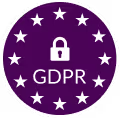Deep industry expertise is a challenge to develop, yet is also a great advantage once you get there. Industry experts are helpful, a strategic asset, and prestigious for the organization that employs them. But it takes real effort from numerous stakeholders to develop and maintain deep industry expertise.
What Is Deep Industry Expertise?
An “industry expert” is someone with a higher level of knowledge in a certain professional area than that held by their peers. But this is a relative measure. For example, a new manager who knows the names of competitors might be considered an expert in the department, but they probably can’t compare to the knowledge of the organization’s chief marketing officer.
This is important because creating an expert takes time. HR leaders running a talent development program for experts should be aware that high levels of workplace knowledge take years, if not decades, to build. A long term commitment is needed both from the employee and the organization.
The basic role for an industry expert is to act as the “go-to” person for specific informational needs. Again, it’s all relative. Your local CRM fanatic might be great at a sensitivity analysis. But if they have no coding skills, then they won’t be able to explain how they want a customized integration job done during high level discussions with the vendor.
Types of Industry Expertise
An organizational expert can have a specialized field or be a generalist. In keeping with the best practices of career development, the employee should be able to choose their area of interest, which will often depend on personality, professional history, and natural abilities. Taking the above CRM example, a good candidate for a talent development program should have some decent programming skills.
Here is a partial list of industry expert types:
- Technology and production equipment
- Competitor and/or supplier information
- Market and industry trends – economic, technical, demand, etc.
- Client requirements and/or development processes
- Positional knowledge in sales, strategy, manufacturing, etc.
Why Should You Develop Deep Industry Expertise?
When an organization has an industry expert on the team, it can benefit in many ways.
Strategy, Policies, and Procedures
Every company needs to decide how it will function on a day to day basis, as well as prepare for the long term. An industry expert acts as a guide for an organization to make the right choices, at least as it touches on that employee’s field of knowledge. For instance, if a manufacturer needs to retool, their expert can advise them on new equipment, installation issues, output capabilities, and training.
Creative Thinking and Change Management
In contrast, organizations in crisis mode often look to an expert for potential solutions to problems. Due to their in-depth knowledge and experience, they can probably come up with a few out of the box ideas. Once these solutions become part of a change management process, the expert can monitor if the ideas are being implemented properly and are having the right effect.
Morale
In both strategic and crisis situations, employees at all levels look to experts. The thought of “we have no idea what we’re going to do” can lead to indecision and poor choices based on lack of knowledge. Experts provide a psychological advantage in the form of greater certainty that the company is going in the right direction.
Prestige
Part of the expert development process involves the participation of the employee in activities that are external to the company (see below). This can lead to recognition of the expert’s abilities by the industry. But the organization where they work also builds their brand at the same time.
Creating Deep Industry Expertise
Depending on the size of your organization, you can develop expertise for a single employee in a critical area, or for a number of them in various roles.
Find Your Expert
As part of a career management program, or when conducting a skills gap analysis, you might come across talented employees with the potential to become experts. You can rely on interviews with workers and managers, performance reviews, and peer reports to identify those with the right skills. But the critical factor is the interest of the employee in that level of responsibility and commitment.
Research Trends
The “expert in the making” will probably have some ideas about what knowledge is critical for the organization’s success. But it can help to have a Q&A session between the expert and an informed person in the company (perhaps another expert) who can guide HR about the direction that development should take. Note that staying on top of trends is an ongoing process due to the inevitable changes that every business and industry goes through.
Set Up a Comprehensive Program
A true expert will have knowledge that goes beyond what they experience at the workplace. Remember that expertise is relative, and as the employee becomes more senior, it’s expected that they will understand a “big picture” that can only be developed through initiatives such as:
- L&D programs to enhance their area of expertise, but also the soft skills they will need to communicate and interact effectively
- Course work and degree studies at an educational institution
- Presentations and participation at company and industry events; news media exposure; social media activity; contributions to journals, think tanks, and other expert forums
- Mentoring programs
- Leadership roles and inclusion at executive meetings
The Experts at Growthspace
Growthspace has its own group of deep industry experts. They are the trainers, coaches, and mentors who provide high quality L&D courses to hundreds of Growthspace clients. By relying on them, you’ll save time and effort when it comes to building talent development programs.
How do you know they’re the best? For starters, every Growthspace coach is ICF-certified. But each expert on the Growthspace network, regardless of specialty, is graded by employees and managers after every engagement. Only the top scorers continue on the platform. It’s a tough measure, but pays off in the quality of training provided to customers.
Ready to turn insights into impact?

















